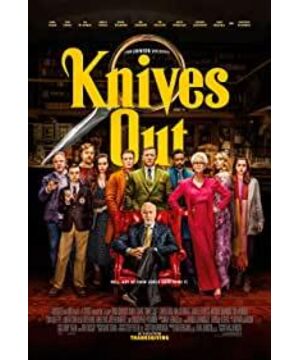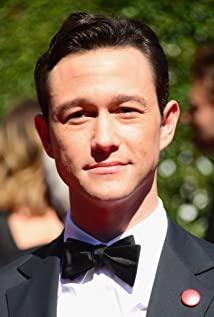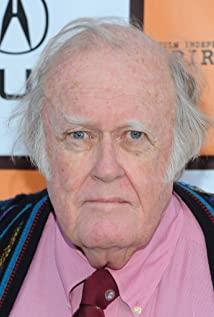The Dragon Knight said in his notorious "When the Sea Cat Cried": The mystery novel is love, and the author's puzzle is like a promise, and the reader will go all out to solve the puzzle in response to this promise.
In this love between the reader and the author, the reader is a pure M. It is best that he can't solve the riddle even if he racks his brains. He has been deceived and deceived by the author until the end.
Generally speaking, there are three puzzles that carry out the whole work:
1. Who is the murderer?
This seemingly most important question is actually not that important.
For example, in "Ren Saburo Kobata", the murderer and the killing process are released directly at the beginning of each episode. In "The Devotion of Suspect X", readers know who committed the crime and why at the beginning. But this does not affect the pleasure of watching when the truth is gradually revealed later.
This shows that just telling you who the murderer is, it will only be a running account of "A killed B". The key puzzles are the following two.
2. What is the core trick?
How did the murderer complete the process of killing and have the confidence to get away with it?
Murder itself is not difficult, and it is very likely that the murder will be successful in the eyes of the public. How to complete the impossible crime without knowing it, and arrange the scene as accident/suicide/other suspects committing the crime is the essence.
3. What is the motive for committing the crime?
The original reasoning has been developed for a hundred years, and it is indeed more and more difficult to write innovative modus operandi. After all, "Three Coffins" published in 1935 basically finished all the secret room puzzles.
So the motive for the crime became another big point. Not only the grievances and grievances behind the case, but also the psychological warfare between the murderer, the detective and other related people, the complex human nature reflected by each behavior, and the entire social reality reflected.
Use the three puzzles above to get into Knives Out.
1. Who is the murderer?
The star's coffee position says it all. Even if Captain America is not the murderer, it must be a deeply related person involved. Not to mention the domestic posters with direct spoilers.
But that's okay, the plot is what matters.
2. About the core trick
The film's most important core subterfuge has two settings.
1) How did the old man die?
The trick setting itself is not bad: the nurse took the wrong medicine because of a mistake, and the old man committed suicide to protect her.
But the biggest problem with this trick is that it was too early to reveal the question, and it was revealed in the nurse's memory about half an hour after the film started. And until the end, the entire memory has nothing to be overturned. (Overturned means: a key event occurred where the nurse did not see it, or the director deliberately concealed a key event)
The result of this is that one of the core tricks is not a trick at all, it doesn't give the reader room to solve the puzzle at all, and it just sticks the answer in your face.
This is just a storyline, but not a reasoning plot.
The pressure has come to the second core trick:
2) Why did the nurse inject the wrong medicine?
Frankly speaking, this trick itself is not too bad: the US team stole the label of real medicine and poison, and the nurse just mistakenly injected the real medicine labelled as poison, and the old man committed suicide without knowing it. A sad story of various coincidences.
However, the first problem with this trick is that, in order to maintain the nurse's innocence and whitewash her fault (the label was not carefully checked before the injection, which is a proper medical malpractice), it is assumed that the nurse subconsciously discovered the truth. The difference between medicine and fake medicine, so the real medicine was injected.
... Whether it's based on a feature film or real medicine in reality, this setting is really far-fetched.
Well, let's accept this far-fetched statement, but even so, there is a second problem: there is no evidence that the US team switched the medicine.
This plot gives too much space for suspects, so big that they can stuff almost everyone in the old man's house: in the last detective's reasoning, all the actions of Captain America, if others do it, are completely enforceable. (or even a completely unrelated outsider)
If Captain America hadn't confessed to killing the housekeeper like cheating in the end, this case would have become a headless unsolved case again. (Of course, even if Captain America admits that he killed the housekeeper, it doesn't prove that he changed his medicine)
In a situation where the holes of two key core tricks can swim through at least one tuna, the writers also fail to deduce the mystery in the plot setting, because the film does not have the title at all.
The first question, how did the old man die, was told to the audience within half an hour; the second question, why the wrong drug was injected, was not known to the audience until the last 20 minutes of the film.
Therefore, the look and feel of this film is to follow the nurse's perspective to a thrilling adventure, rather than deduce the mystery.
3. What is the motive for committing the crime?
If the hole in the core trick can swim through a tuna, the hole in the character's psychology in the film can swim through a whale.
1) Why did Captain America ask the nurse to give up the inheritance instead of giving him part or all of it?
Captain America even murdered his grandfather for money. But when the nurse fears that she will be exposed to the truth of medical malpractice, why is his purpose still to let the nurse go to the whole family to renounce the inheritance?
If the nurse gives up directly, the estate will go into intestate distribution. According to the order of inheritance, the money will be divided equally among the children of the old man (the granddaughter Meg can inherit by subrogation), and there is nothing to do with the third generation. Looking at the relationship between the US team and their parents in the film, the US team has a high probability of not getting much money.
So, why didn't Captain America just split half, or use it as a coercion to let her give him the whole thing? (He has the condition to record the nurse's confession as a handle. After all, if the matter is made public, the nurse will not only lose the right of inheritance, but also bear the consequences of medical malpractice and drag down the family.)
2) Why did the old man not leave a penny to his mother and children, but to give it all to the nurse?
This is the most criticized episode. The head of the family can make a decision not to leave a penny to the family. This family is at least to the extent of cannibalism, but is this family really okay? Not to mention the eldest daughter and granddaughter who are not at fault, and the younger son just persuaded him on the issue of authorization (not even scolding you for being a stubborn old man), this kind of dispute that will happen in any company can cause the old man to say Don't do it, I give the copyright to others? (Note that the younger son has been working for the copyright company all the time, and suddenly told him when he was middle-aged that you should stop doing it, Duduo is a laid-off worker in the Northeast). This is not to the extent that there is no father-son relationship, not even the loyalty of business partners.
Of course, some people say that this is the hard work of the old man, because he loves his children, so he deliberately does not leave the money to them, but this cannot solve this contradiction: the old man likes nurses, and loves them to the extent that he can commit suicide to protect her; but the old man puts these All the money that hinders people's growth is reserved for nurses? In the old man's mind, is inheritance a good thing or a bad thing?
Of course, there is not even a word in the will that mentions the magical plot of his 100-year-old mother. The old lady is so pitiful. In this film, she is just a tool person who says "Why are you back again, Captain America~".
(I don't talk about political metaphors here, just discuss the rationality of the plot based on real life)
3) Are nurses kind or black-bellied?
The film wants to portray the nurse as a kind, hard-working and honest image. But all kinds of details are falling apart. Before seeing the autopsy report, the nurses believed that she had injected the wrong medicine to cause the death of the old man, but there was no scene of her repenting because of her own fault. Her nervousness comes from whether the misinjection will be discovered and whether the inheritance can be obtained by herself.
In the end, the nurse found out that she did not inject the wrong medicine, shouldn't she feel more guilty at this time? If he insisted on calling an ambulance at that time, the old man could have survived. Could it be that her mental activity is "You just lost a life, my family is going to bear the risk of illegal immigrants being deported!"
Not only did the nurse have no guilt, but Shi Shiran looked down on the entire family as a mistress, using the old master's cup.
There is no malicious intent, but everyone can imagine this story: an old man who collects rent in 400 buildings in Guangzhou, and a family nurse (black). One day, the little black nurse injected the wrong medicine but did not call the ambulance, resulting in the death of the old man. After his death, he found that the old man did not leave a penny to his 100-year-old mother and three children, but left all the money and 400 buildings to the little nurse. The little nurse insists she deserves the inheritance more than the rest of the family.
The reason why the little nurse did not call 110 was because she was afraid that her family members who had smuggled into Guangzhou would be deported.
Do you feel a strong sense of strangeness and disobedience?
So even aside from the bug of the nurse stepping on her feet and lying but not spitting up, her kind and sincere personality is untenable.
It can only be explained that the nurse is a black-bellied boss... But even if the nurse is a black-bellied boss, it can't make up for the problem in the core trick...
To sum up, "Knives Out" may be a good-looking film, but it is really a bad reasoning film. Thanks for trying to recreate classical reasoning, but it really didn't do it...
Finally, he refuted that an old man planned to die. Some people say that the old man has no problem seeing through the medicine, but because he is a mystery novelist, he would rather design a mysterious death ending by himself rather than dying in a normal way. What I want to say is that the so-called grand death curtain call of mystery novelists is usually suicide faked as homicide, intoxicated by imagining everyone racking their brains to find the murderer, rather than fake suicide and let the incident calm down as soon as possible...
View more about Knives Out reviews











